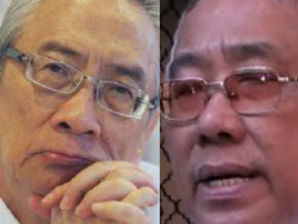MANILA, Philippines — Some members of the Catholic Church hierarchy were not impressed with a priest running for governor in Masbate in the 2013 midterm elections, calling it a betrayal of his “spiritual calling.”
The prelates of the Catholic Bishops’ Conference of the Philippines (CBCP) also reiterated on Wednesday that the laity, not the clergy, should engage in politics. But, at the same time, they admitted that some priests were thrust into the political arena under “exceptional situations.”
“It’s a betrayal of commitment and obligation,” said Archbishop Emeritus Oscar Cruz. “When a priest is ordained and he accepts his obligations for his whole life, it’s a pity if these obligations he will betray in favor of something else.”
Fr. Leo Casas is set to make his bid for governor official on Friday under the administration’s Liberal Party. He will go against the established political dynasties in the province. Some prelates earlier said that he could lose his clerical ministry or removed from the priesthood if he pursued his political plans.
Sorsogon Bishop Arturo Bastes shared the view, on Wednesday, that priests entering politics would be a “betrayal of spiritual calling.” “Perhaps, because of exceptional situations like in Masbate, the priest thinks he can enter politics.”
But from previous experience, a priest-politician did not always succeed in the end, he noted. “That’s why the Church forbids the clergy from engaging in partisan politics.”
Priests are drawn to seek government office especially when the political sector is handicapped, according to Lipa Archbishop Ramon Arguelles.
“I am not in favor of any priest becoming a politician. But the Church does not lose anything when a priest turns into a politician. God remains complete and his work of saving man does not wane,” he added.
“It is the political sector that appears handicapped [so] it has to bring in clerics for lack of competent and reliable people,” said the prelate.
